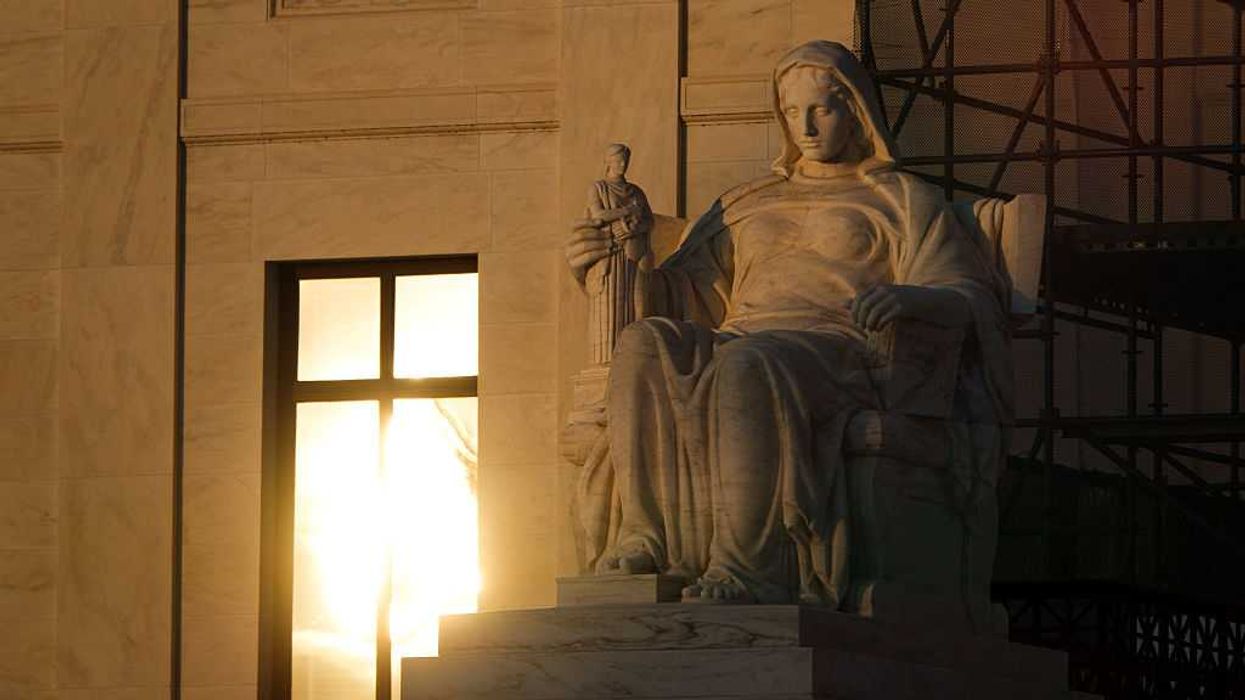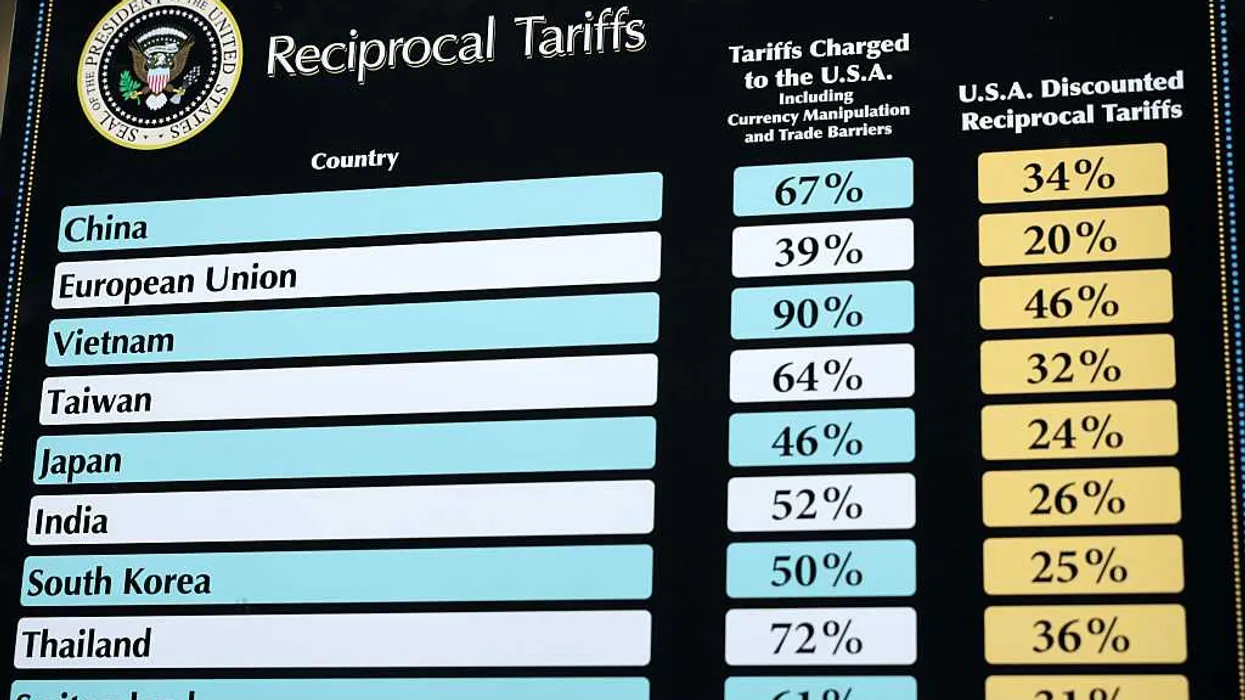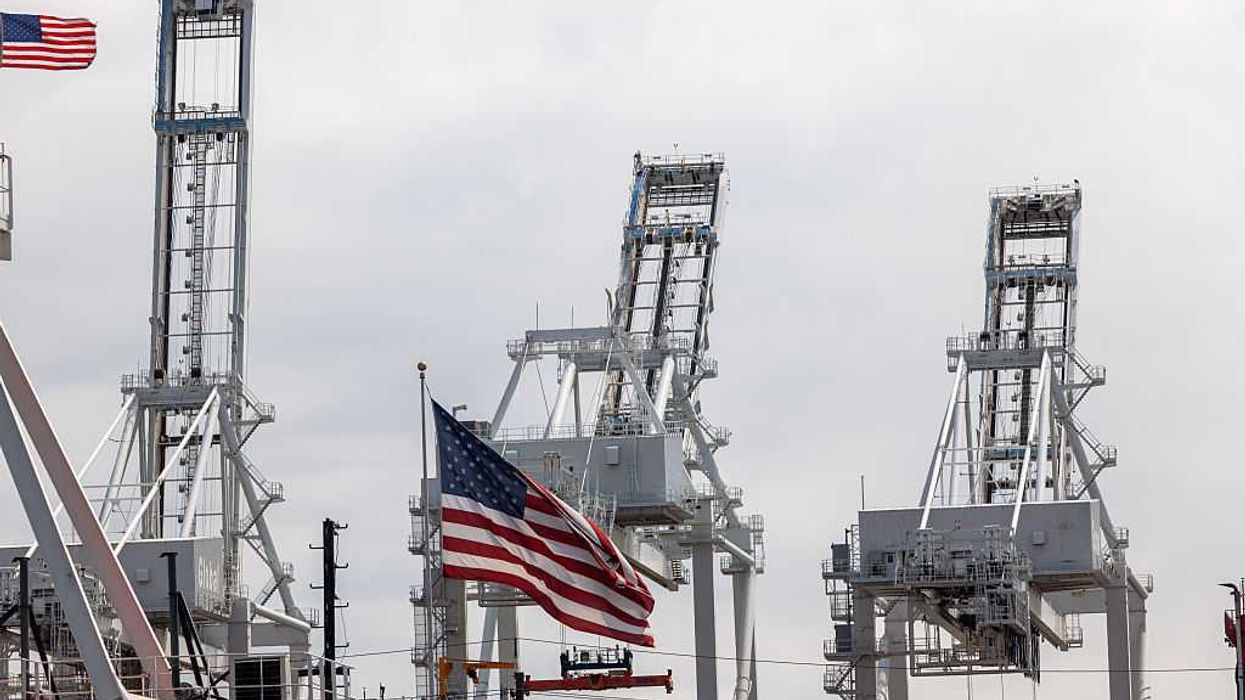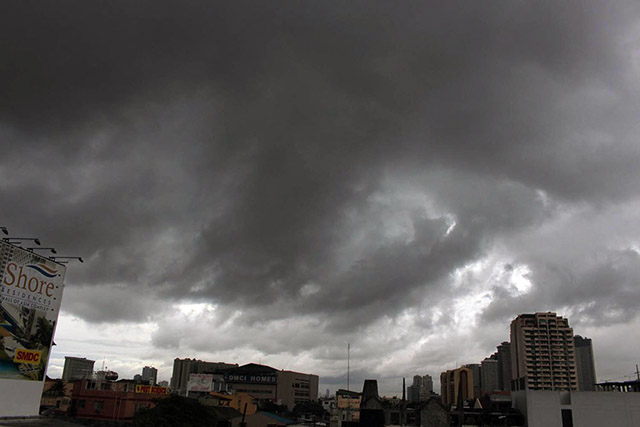
Day: November 22, 2025
33a63191-4566-5d8f-9c74-94a62b55dfcd • fnc • Fox News • fox-news/us/congress • fox-news/us/democratic-party
California governor hopeful Eric Swalwell embraces role as Trump’s loudest critic amid new DOJ probe
The outspoken Democrat calls the new DOJ investigation “political,” saying he won’t back down from his clashes with Trump.
da297172-0ad7-55c3-8ac6-c7514609e93a • fnc • Fox News • fox-news/us/democratic-party • fox-news/us/us-regions/midwest/michigan
Sen. Slotkin’s home targeted with bomb threat days after she told troops to defy ‘illegal’ orders
Michigan State Police confirmed no one was in danger after Sen. Elissa Slotkin’s home in Michigan received a bomb threat on Friday, a spokesperson said.
df2f6173-9be1-5b43-9bb2-2680650527b9 • fnc • Fox News • fox-news/sports/nfl • fox-news/sports/nfl/dallas-cowboys
Cowboys exec reveals why star wide receiver George Pickens was benched vs Raiders
Dallas Cowboys executive vice president Stephen Jones revealed why head coach Brian Schottenheimer benched George Pickens last week against the Las Vegas Raiders.
dcc76960-befe-53a8-9e89-7e2e6fb9f976 • fnc • Fox News • fox-news/person/bill-belichick • fox-news/sports/ncaa/north-carolina-tar-heels
Bill Belichick’s daughter-in-law unleashes profanity-filled rant at Jordon Hudson after Tar Heels game: report
Bill Belichick’s daughter-in-law reportedly unleashed a profanity-filled tirade against his girlfriend, Jordon Hudson, following a Nov. 8 game against Stanford.
Bill Maher calls out Jimmy Kimmel’s wife for giving Trump-voting family members an ‘ultimatum’ on politics
On Friday’s episode of “Real Time,” host Bill Maher slammed Jimmy Kimmel’s wife, Molly McNearney, for giving her Trump voting family members what he called an “ultimatum” on politics.
Politics…Imagined
It has disappeared almost as fast as it sprang into the discussion, but the video from veteran Democratic persons in Congress, telling members of the military they did not need to follow unlawful orders bears further discussion. (I had to search far and wide, but found it in unaltered, unedited and uncommented form on the Facebook page of one of the Congresspersons involved.) Everybody has rightfully asked, “What orders?” But I don’t think the non-existence of such orders is really the heart of the issue here.
The post Politics…Imagined appeared first on The Hugh Hewitt Show.
The imperial judiciary strikes back

So far, more than 100 federal court judges have ruled against the Trump administration in hundreds of lawsuits filed by states, unions, nonprofit organizations, and individuals.
While some of these rulings are fairly grounded in the Constitution, federal law, and precedent, many are expressions of primal rage from judges offended by the administration and moving at breakneck speed to stop it.
Trump sometimes exceeds his authority. Activist judges substitute ‘frequently’ for ‘sometimes.’ The Constitution and the Supreme Court disagree.
According to a Politico analysis, 87 of 114 federal judges who ruled against the administration were appointed by Democratic presidents, and 27 by Republicans. Most of the lawsuits were filed in just a few districts, with repeat activist judges leading the opposition.
Lawsuits against the administration may be filed in the District of Columbia and, often, also in other districts. Initially cases are randomly assigned. Plaintiffs focus on districts with predominantly activist, progressive judges. Because related cases are usually assigned to the same judge, later plaintiffs file in districts in which related cases were assigned to friendly activists.
Conservative judges generally believe they should interpret the law and avoid ruling on political questions, while liberals tend to see themselves as protectors of their values. After 60 years of domination by activist liberals, the Supreme Court and conservative appeals court judges are finally demanding that district court judges respect the Constitution. The Supreme Court is also re-evaluating precedents established by far-left justices who substituted their values for the words and intentions embodied in the Constitution.
To date, the Supreme Court has reversed or stayed about 30 lower court injunctions blocking the administration, and appeals courts have reversed or stayed another dozen. Even Justice Ketanji Brown Jackson imposed an administrative stay on a district court decision requiring the immediate resumption of SNAP payments.
Federal judges who oppose Trump’s agenda are openly opposing the Supreme Court. In April, D.C. Chief Federal Judge James Boasberg sought to hold administration officials in criminal contempt for violating an order the court had vacated. In May, Fifth Circuit Court of Appeals Judge James Ho criticized the court’s demand that district courts act promptly on administration requests. In a September ruling, Boston Federal Judge Allison Burroughs challenged the court for expecting lower courts to treat its emergency orders as binding legal precedent.
Ten of 12 federal judges interviewed by NBC News in September, and 47 of 65 federal judges responding to a New York Times survey in October, thought the court was mishandling its emergency docket. They described orders as “incredibly demoralizing and troubling” and “a slap in the face to the district courts.”
Deservedly so. Though the Supreme Court and appeals courts judges have rebuked district court judges for ignoring higher courts and abusing their authority, they continue to do so with rulings focused on identity politics and a progressive lens on the woes of immigrants, minorities, women, and workers. They likely expect to be reversed on appeal, but they secure wins by causing delay and creating fodder for progressive activists to rally their supporters.
There is little that can be done about these judges. Removal requires a majority vote in the House and a two-thirds vote in the Senate. With Democrats supporting these judges, those votes are unrealistic.
RELATED: Who checks the judges? No one — and that’s the problem.
 Photo by Kevin Carter/Getty Images
Photo by Kevin Carter/Getty Images
Just a few of the dozens of examples of politicized judicial decisions:
In May, Myong Joun, a Biden appointee in Boston, enjoined layoffs at the Department of Education in a decision featuring an encomium to its anti-discrimination mission. The Supreme Court stayed his injunction.
Despite this precedent, Susan Illston, a Clinton appointee in San Francisco, issued a nationwide injunction barring the administration from firing union employees during or because of the government shutdown. Ignoring settled law, she bemoaned the “trauma” of workers who had been under “stress” ever since Trump’s election. Illston gambled correctly that the shutdown would end before her order could be reversed.
Indira Talwani, a federal district court judge in Boston, went further. Declaiming her fear that defunding Planned Parenthood would deprive women of access to abortions, she elided Article I of the Constitution, which requires all federal spending to be approved by Congress, nullifying a duly enacted statute that suspended funding of large abortion providers for a year. By the time she is reversed, the suspension will have expired.
In June, after San Francisco Federal Judge Charles Breyer enjoined Trump from federalizing the California National Guard, a three-judge panel of the Ninth Circuit unanimously stayed his order, explaining that on military matters, the president’s judgment stands unless it is dishonest. Nonetheless, Oregon Federal Judge Karin Immergut subsequently blocked deployments in Portland, substituting her assessment of the situation for the president’s.
An Obama-appointed judge recently interviewed by NBC explained, “Trump derangement syndrome is a real issue. As a result, judges are mad at what Trump is doing or the manner he is going about things; they are sometimes forgetting to stay in their lane.”
Trump sometimes exceeds his authority. Activist judges, who self-reverentially believe progressive technocrats and judges are democracy’s guardians, substitute “frequently” for “sometimes.” The Constitution and the Supreme Court disagree.
Blaze Media • Broward county sheriff’s office • Crime • Female attacks elderly woman on bus • Florida • Physical attack
Video: Female bully towers over and beats up elderly woman on Florida bus. Victim is left ‘battered and bruised’: Sheriff.

Law enforcement in Florida is looking for a female seen on video inside a bus beating up an elderly passenger last month.
A 70-year-old woman on Oct. 21 took a seat in the disabled section of a transit bus, the Broward County Sheriff’s office said, adding that “her ride would end with her battered and bruised after being attacked by a fellow bus rider.”
‘This is repulsive. This is something that should never happen; it should not happen in any type of civilized society. What this woman did is absolutely unacceptable.’
Detectives said the attacker, who was standing, bumped into the victim several times due to the movement of the bus, officials said.
The victim asked the attacker to give her some space, officials said, after which a verbal argument ensued.
With that, officials said the attacker “intentionally and forcefully pushed her body into the victim several times. The attacker then grabbed a grocery bag and struck her in the face with it.”
At one point during the assault, video appears to show the feisty elderly woman issuing a middle finger to her attacker.
The sheriff’s office said the victim used her cane to defend herself, and the attacker punched the victim multiple times in the head.
Officials said several bystanders on the bus came to the victim’s defense and separated her from the attacker.
The bus driver saw the incident and stopped the bus in the 4100 block of West Oakland Park Boulevard in Lauderdale Lakes, officials said, and that’s where the attacker and a woman with her fled.
The victim suffered bruising on her forehead but declined to be transported to the hospital, officials said.
“Fortunately the victim did not suffer any major injuries. She was treated on scene,” sheriff spokesperson Carey Codd told WFOR-TV.
Codd added, “This is repulsive. This is something that should never happen; it should not happen in any type of civilized society. What this woman did is absolutely unacceptable.”
Broward Sheriff’s Office Violent Crimes Unit detectives released video of the attack in hopes of identifying the woman who pestered the elderly woman before punching her repeatedly. You can view the sheriff’s office video here.
Those with information on the identity of the attacker or the woman with her are asked to contact BSO Violent Crimes Unit Detective Andres Lopez at 954-321-4915 or submit a tip through the SafeWatch app, officials said.
Those wishing to remain anonymous and be eligible for a cash reward can contact Broward Crime Stoppers at 954-493-TIPS (8477), submit a tip online at browardcrimestoppers.org, or dial **TIPS (8477) from any cell phone in the United States. If your tip leads to an arrest in this case, you are eligible for a reward of up to $5,000, officials said.
Like Blaze News? Bypass the censors, sign up for our newsletters, and get stories like this direct to your inbox. Sign up here!
Blaze Media • Opinion & analysis • Tariffs • Taxes • Trade policy • Trump
Is a tariff a tax?

Is a tariff a tax? Many Americans have forgotten that this question, which has been in the news more or less all year, was fundamental to the American Revolution. And among American Patriots, or Whigs, meaning those who supported the colonists’ claims against Parliament, there was almost universal consensus that they were different things, constitutionally speaking.
Throughout the Imperial Crisis of 1763 to 1776, the consensus among the colonists was that Parliament had the right to regulate trade in the British Empire but had no right to tax the colonists. And they recognized that a regulation of trade might take the form of a duty imposed upon, for example, molasses imported from French colonies to favor molasses imported from British colonies.
The founding generation believed in the separation of powers.
In the colonists’ view, the Sugar Act of 1764 was an unconstitutional innovation. The Act was quite explicit, stating at the top that it was passed for the purpose of “applying the produce of such duties, and of the duties to arise by virtue of the said act, towards defraying the expences of defending, protecting, and securing the said colonies and plantations.” It was the first trade act to do that.
Townshend’s overreach
The Stamp Act of 1765, and the reaction to it, made the protest against the 1764 Sugar Act less conspicuous. The result of the actions taken against the Stamp Act was that many in Parliament did not grasp the American argument against the Sugar Act. Hence, Parliament passed the Townshend Acts in 1767, imposing duties on lead, glass, paper, paint, and tea to raise revenue. When the colonists complained, many in Parliament accused the colonists of moving the goalposts.
The charge was not accurate, but it did reflect what they believed. And, like many today, many members of Parliament were unable to grasp the difference between a duty imposed for the purpose of trade regulation and a duty imposed for the purpose of raising revenue.
The most famous criticism of the Townshend Acts, and the most popular writing of the era until Thomas Paine published “Common Sense” in January 1776, was John Dickinson’s “Letters from a Farmer in Pennsylvania.” In the second letter, Dickinson made the consensus Patriot argument logically, clearly, and eloquently.
There is another late act of parliament, which appears to me to be unconstitutional, and as destructive to the liberty of these colonies, as that mentioned in my last letter; that is, the act for granting the duties on paper, glass, etc.
The parliament unquestionably possesses a legal authority to regulate the trade of Great Britain, and all her colonies. Such an authority is essential to the relation between a mother country and her colonies; and necessary for the common good of all …
I have looked over every statute relating to these colonies, from their first settlement to this time; and I find every one of them founded on this principle, till the Stamp Act administration.* All before, are calculated to regulate trade, and preserve or promote a mutually beneficial intercourse between the several constituent parts of the empire. … The raising of a revenue thereby was never intended. … Never did the British parliament, till the period above mentioned, think of imposing duties in America for the purpose of raising a revenue. …
Here we may observe an authority expressly claimed and exerted to impose duties on these colonies; not for the regulation of trade; not for the preservation or promotion of a mutually beneficial intercourse between the several constituent parts of the empire, heretofore the sole objects of parliamentary institutions; but for the single purpose of levying money upon us.
This I call an innovation; and a most dangerous innovation.* It may perhaps be objected, that Great Britain has a right to lay what duties she pleases upon her exports.
That so many people today don’t seem to understand this distinction is a sign that the American bar seems to have gone Tory. The founding generation’s way of thinking about tariffs, and perhaps law in general, is in danger of being rendered foreign to our public policy discussion, perhaps even to constitutional discussion, even among people who mistakenly think of themselves as originalists.
This way of thinking, of course, says little about the current case, as the purpose of the law itself must be understood in light of the thinking of the men who passed it. But it is also true that the way of thinking that Dickinson represented, and which was broadly shared in the founding generation, might have something to say here.
Delegation’s limits
The founding generation believed in the separation of powers. The founders recognized, as “The Federalist” notes, that in practice the powers will inevitably overlap and sometimes clash. But they did operate within a way of legal and constitutional thinking that took it as a given that in order to guard the separation of powers, any delegation of legislative powers to the executive had to be limited and focused.
There is a difference between a reasonable and an unreasonable delegation of powers, just as there is between a tax and a regulation of trade, even if, in both cases, money is raised at customs houses. The kind of delegation the Trump administration is asserting in this case is difficult, perhaps impossible, to reconcile with the practice of separation of powers. Congress has no right to abdicate its obligation to set trade policy via legislation.
RELATED: Read it and weep: Tariffs work, and the numbers prove it
 Photo by Spencer Platt/Getty Images
Photo by Spencer Platt/Getty Images
The Trump administration’s assertion that it has the right to set tariffs worldwide, claiming unlimited emergency power based on a law designed to delegate to the president a narrow emergency power, resembles the kind of expansive, arbitrary interpretation that the founders’ legal heroes fought.
In the 1630s, King Charles claimed the right to collect “ship money” throughout England. By tradition, the king had the right to raise money, without Parliament’s consent, in port towns in time of war, or if war was imminent.
King Charles asserted a living constitution interpretation: Given modern circumstances, he claimed a general right to raise taxes if a war emergency was imminent. Dickinson mentioned the case in the first Farmer’s Letters, suggesting there was a connection between the logic of the one argument and the other.
Our difficulty recognizing the limits of the nondelegation doctrine — and our confusion about the difference between a duty imposed to raise revenue and one imposed to regulate trade — shows how much work remains if we want to understand the Constitution as the framers did. That understanding requires grappling with the ideas about human nature, government, and law that justified ratification in the first place and that still anchor our constitutional order.
Editor’s note: This article was originally published by RealClearPolitics and made available via RealClearWire.
Several weather systems to bring cloudy skies, rains over PH

Multiple weather systems will continue to bring cloudy skies and rains across the country, according to PAGASA”s weather forecast on Saturday afternoon.
search
categories
Archives
navigation
Recent posts
- Gavin Newsom Laughs Off Potential Face-Off With Kamala In 2028: ‘That’s Fate’ If It Happens February 23, 2026
- Trump Says Netflix Should Fire ‘Racist, Trump Deranged’ Susan Rice February 23, 2026
- Americans Asked To ‘Shelter In Place’ As Cartel-Related Violence Spills Into Mexican Tourist Hubs February 23, 2026
- Chaos Erupts In Mexico After Cartel Boss ‘El Mencho’ Killed By Special Forces February 23, 2026
- First Snow Arrives With Blizzard Set To Drop Feet Of Snow On Northeast February 23, 2026
- Chronological Snobs and the Founding Fathers February 23, 2026
- Remembering Bill Mazeroski and Baseball’s Biggest Home Run February 23, 2026






